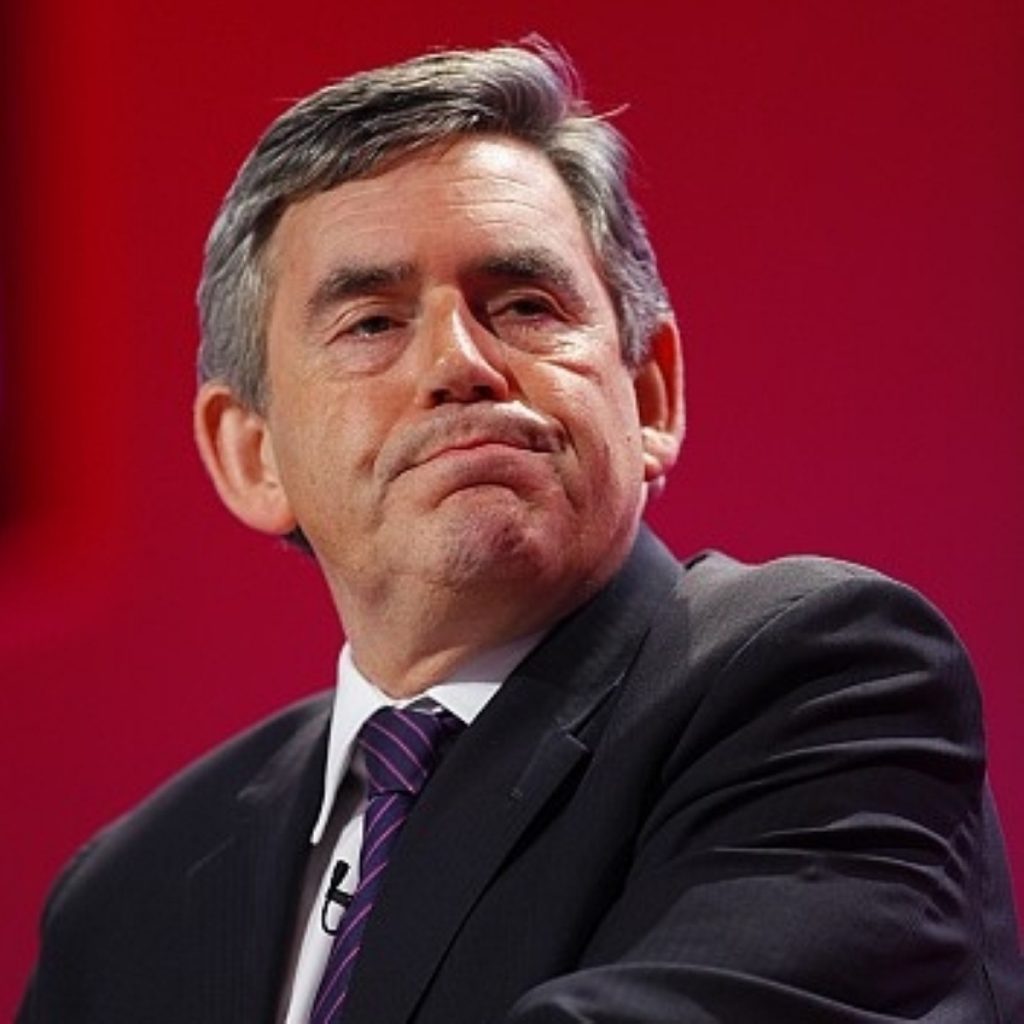PMQs sketch: Brown in retreat
David Cameron deployed the overwhelming force of his backbenchers to rout Gordon Brown in this week’s prime minister’s questions.
The Ministry of Defence (MoD) began the work of the strategic defence review with today’s green paper, as Bob Ainsworth was to explain immediately after PMQs wrapped up. It seems they forgot to explain some very fundamental tactical truisms to their political commander-in-chief.
For while the leader of the opposition marshalled his troops with a devastating double-strike against the PM, Brown’s response was uncoordinated and confused. He grasped at the economy, inheritance tax, anything that came to mind, to evade the incoming missiles homing in on him.


Alas, his reliance on weapons of mass distraction failed. He was soon in full retreat.
One of the first lessons of the green paper, the wise old generals at the MoD have learned, is the need to directly respond to the threat in hand. So when Cameron launched his assault by accusing Brown of having let down Britain’s troops in Iraq, the prime minister should have responded in kind.
Instead he began by arguing, utterly disconnected to what had just been raised, that the Tories “don’t know what their policy is in 2010”. Brown had committed his main argument too early in the exchanges. All present knew it. The Tory backbenchers howled a battlecry of triumph. Brown tried again, descending to hushed tones as he explained how much he liked allocating resources to the armed forces. But it was doomed to failure. The Tories sensed the momentum had shifted, and closed for the kill.
This was why it was so clever of Cameron, having established an early advantage, to opt for the strategic withdrawal rather than clinging desperately on. After his first three questions he sat down, leaving the Speaker to call on a Labour backbencher in his place. Those behind him were appalled, then outraged, then mobilised in quick succession. “More!” they roared, drowning out the plaintive efforts of Jamie Reid. Poor Mr Reid was an innocent casualty of the larger war being waged around him. His slow death at the hands of ironic Labour cheers will doubtless trigger protests outside parliament for weeks to come.
If there was one lesson the prime minister took from today’s defence review, it was the increasing reliance the government places on developing alliances and relationships with those who, in the near future, it views as potential partners. Nick Clegg had stuck to his guns as he pressed home his party’s opposition to the Trident nuclear deterrent. “We must give him the credit of being consistent in his policies,” Brown beamed, “something I cannot say about the opposition.”
The respite was only brief, for here was Cameron swooping in for his latest bombardment against No 10. The opposition leader’s latest target was the timing of Brown’s electoral reform announcement, which he seemed to think might be linked to the coming election. The shells rained down: Brown was “trying to fiddle” with the system. He had blocked Tony Blair’s previous reform efforts. And then the final rapier thrust: he was talking “a load of rubbish”.
In response the prime minister’s left arm waved upwards dismissively, trying to brush off these latest setbacks. Saddam Hussein might have made exactly the same gesture as coalition forces trundled into Baghdad.

